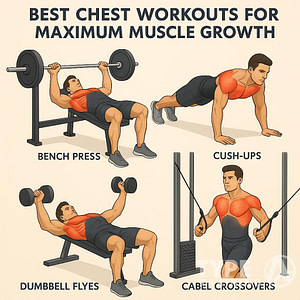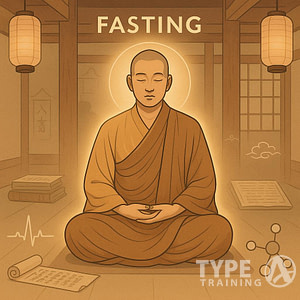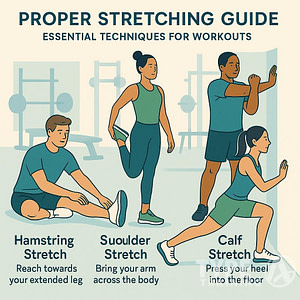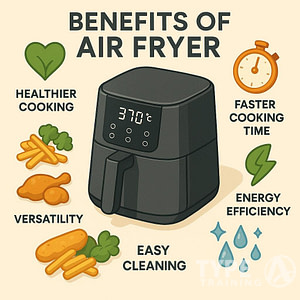In the realm of fitness, recovery is just as crucial as the workout itself. After pushing your body to its limits, providing it with the right tools for healing can make a significant difference.
Here is a great post about the best Essential Oils for Post-Workout Recovery. Not only do they offer benefits such as reduced muscle soreness and improved relaxation, but they also provide a host of other great benefits for the body, which we will discuss in this post.
For those serious about optimizing their recovery process, exploring the world of essential oils could be the game-changer you need.
Popular posts:
With options like lavender for soothing muscles, peppermint for cooling relief, and eucalyptus for alleviating discomfort, these natural solutions can seamlessly integrate into your routine.
Diffusers amplify the effects of these oils, making them easier to incorporate into your recovery.
To ensure you’re getting the most out of your post-workout routine, you need to choose the right essential oils and learn how to use them effectively. Using a diffuser can enhance the benefits of these oils, delivering consistent, aromatic relief that supports your body’s natural healing processes.
Key Takeaways
- Essential oils aid in post-workout recovery.
- Diffusers enhance the benefits of essential oils.
- Choosing and using the right oils is key for effective recovery.
Understanding Post-Workout Recovery
Post-workout recovery is vital for muscle repair, alleviating soreness, and reducing inflammation. Efficient recovery practices can prevent injuries and improve overall performance.
The Role of Recovery in Exercise
Recovery allows your muscles to repair and grow stronger. After a workout, your muscle fibers experience tiny tears. Proper recovery, through techniques such as stretching and hydration, helps heal these tears.
Essential oils play a part by reducing inflammation and promoting circulation. For instance, peppermint oil is known for its cooling effect, which helps alleviate swelling and muscle pain.
Using a diffuser can spread these oils effectively, ensuring that your body can relax and mend.
Common Post-Workout Challenges
Common challenges include muscle soreness, stiffness, and fatigue. Muscle soreness, often referred to as DOMS (Delayed Onset Muscle Soreness), occurs typically after intense workouts.
Eucalyptus oil helps by relaxing tense muscles and easing pain. Meanwhile, black pepper oil is particularly effective for reducing soreness in the muscles.
Tackling these issues involves using a combination of essential oils, rest, and proper nutrition to ensure your muscles are ready for the next exercise session.
Essential Oils For Post-Workout
Different essential oils offer unique benefits for post-workout recovery. By integrating specific oils into your routine, you can target inflammation, pain, and stress to effectively enhance your recovery process.
Anti-Inflammatory Essential Oils
Anti-inflammatory essential oils like lavender and ginger can significantly reduce muscle inflammation. They work by soothing irritated tissues and promoting better blood flow to the affected areas.
Lavender is known for its calming effects that also aid in reducing inflammation. Meanwhile, ginger, often praised for its warming properties, can penetrate deeply into sore muscles to provide relief. Both can be diluted with a carrier oil and applied directly or used in a diffuser.
Pain-Relieving Essential Oils
To alleviate aches and soreness after a workout, essential oils like peppermint and eucalyptus are highly effective.
These oils have natural analgesic properties that can help reduce muscle discomfort and tension.
Peppermint oil offers a cooling sensation that can provide immediate relief for sore muscles. Meanwhile, eucalyptus oil is excellent for easing muscle stress with its anti-inflammatory and pain-relieving properties. You can apply diluted versions directly to sore areas or add a few drops to a warm bath for widespread relief.
Essential Oils for Relaxation and Stress Relief
Recovery isn’t just about the physical body; it’s also about mental well-being. Oils such as rosemary and eucalyptus can deeply relax both mind and body, making them ideal for stress relief post-exercise.
Rosemary not only boosts cognitive function but also alleviates stress and tension. Meanwhile, eucalyptus, known for its refreshing scent, has a soothing effect that calms both the mind and the muscles.
Use these oils in aromatherapy diffusers or combine them with a carrier oil for a relaxing massage to maximize their benefits.
Best Essential Oils for Pre-Workout
Using essential oils before a workout can help boost your energy levels, improve focus, and prepare your muscles for the physical activity ahead. Here are five of the best essential oils to incorporate into your pre-workout routine:
Peppermint Oil
Benefits: Peppermint oil is known for its invigorating and energizing properties. It can help increase alertness and improve exercise performance by enhancing oxygen flow to the muscles.
How to Use: Apply a few drops of peppermint oil diluted with a carrier oil to your temples, wrists, or chest. You can also inhale it directly or diffuse it in your workout space.
Lemon Oil
Benefits: Lemon oil has a refreshing and uplifting scent that can boost your mood and energy levels. It also helps to improve concentration and mental clarity, making it easier to stay focused during your workout.
How to Use: Diffuse lemon oil in your workout area or inhale it directly from the bottle. You can also mix a few drops with a carrier oil and apply it to your wrists or neck.
Eucalyptus Oil
Benefits: Eucalyptus oil has stimulating properties that can help increase energy and improve respiratory function. Its refreshing scent can also help clear the mind and enhance focus.
How to Use: Add a few drops of eucalyptus oil to a diffuser or inhale it directly before your workout. You can also dilute it with a carrier oil and apply it to your chest or back.
Rosemary Oil
Benefits: Rosemary oil is known for its ability to improve circulation and boost mental clarity. It can help increase alertness and reduce fatigue, making it an excellent choice for pre-workout use.
How to Use: Diffuse rosemary oil in your workout space or inhale it directly. You can also mix it with a carrier oil and apply it to your wrists or temples.
Grapefruit Oil
Benefits: Grapefruit oil has an uplifting and energizing scent that can help improve mood and increase energy levels. It also has detoxifying properties that can help prepare your body for physical activity.
How to Use: Inhale grapefruit oil directly or add a few drops to a diffuser. You can also dilute it with a carrier oil and apply it to your wrists or neck.
Best Essential Oils for Post-Workout Recovery
Using essential oils after a workout can significantly enhance your recovery process by reducing muscle soreness, alleviating tension, and promoting relaxation. Here are five of the best essential oils to incorporate into your post-workout routine:
Peppermint Oil for Cooling and Soothing
Peppermint oil is an excellent choice for post-workout recovery due to its cooling and soothing properties. It contains menthol, which can help reduce muscle pain and tension.
Applying diluted peppermint oil to sore muscles can provide immediate relief, making it a valuable addition to your recovery routine. The cooling sensation also helps alleviate inflammation, making it especially beneficial for those who experience muscle soreness after exercise. Consider using peppermint oil in a massage blend or adding it to your bath for a relaxing and refreshing experience.
Lavender Oil for Stress and Muscle Recovery
Lavender oil is widely known for its calming effects, making it perfect for post-workout stress relief. It has mild anxiolytic properties that can help reduce anxiety and promote relaxation.
Lavender essential oil is also effective in relieving muscle aches and soreness. It can be used in a diffuser to create a calming atmosphere or applied topically with a carrier oil to target specific areas of discomfort. The soothing aroma of lavender oil can also enhance your overall sense of well-being, making it an essential part of your recovery toolkit.
Eucalyptus Oil for Respiratory Benefits
Eucalyptus oil offers respiratory benefits that can support your post-workout recovery. Its invigorating scent helps clear nasal passages, making it easier to breathe deeply and recover more efficiently.
Eucalyptus oil also possesses anti-inflammatory properties, which can help reduce muscle pain and stiffness. Diffusing eucalyptus oil or adding it to a steam inhalation can improve your respiratory function and enhance your overall recovery experience. For localized relief, consider using it in a massage blend to target sore and tired muscles.
Ginger Oil for Muscle Pain and Circulation
Ginger oil is highly effective for reducing muscle pain and improving circulation. Its warming properties help increase blood flow, which can accelerate the healing process of sore muscles.
Applying ginger oil with a carrier oil to affected areas can help reduce inflammation and relieve pain. This essential oil is particularly beneficial for those who suffer from chronic muscle pain or stiffness.
Incorporating these essential oils into your post-workout routine can help you recover faster and more effectively, allowing you to get back to your fitness regimen with renewed energy and reduced discomfort.
Choosing and Using Diffusers
Selecting the right diffuser and understanding how to use it can significantly enhance your post-workout recovery. Various types of diffusers cater to different needs, and using them correctly ensures you gain maximum health benefits from aromatherapy.
Types of Diffusers Recommended for Recovery
Several types of diffusers are suitable for post-workout recovery, each with unique characteristics.
Ultrasonic diffusers use water and ultrasonic waves to disperse essential oils into the air, providing a humidifying effect that can be soothing after intense physical activity.
Nebulizing diffusers don’t use water or heat, thus delivering a pure and highly concentrated aroma which can be especially effective for quick recovery.
Evaporative diffusers use internal fans to evaporate the oil, distributing it efficiently. These are usually more affordable and portable, making them convenient for home use or on the go.
Heat diffusers use heat to disperse the oils, which can alter the chemical properties of some oils but remain effective for simple relaxation needs.
How to Use Diffusers for Maximum Benefit
To achieve the best results, place the diffuser in a well-ventilated area, ideally where you spend most of your post-workout time.
Ensure the room is clean, as dust and contaminants can affect the purity of the diffused oils.
Use oils that promote recovery such as lavender, chamomile, and eucalyptus. Follow specific recipes like 5 drops of lavender and 4 drops of chamomile to aid relaxation or 4 drops of eucalyptus for muscle pain relief.
Clean your diffuser regularly to maintain its efficacy and avoid mixing old and new scents.
Usage times can vary, but typically running the diffuser for 30 minutes to an hour should be sufficient for noticeable health benefits.
Supplemental Recovery Techniques
Incorporating massage with essential oils and utilizing heat through Epsom salts baths can significantly enhance your post-workout recovery. These techniques can soothe muscle soreness, alleviate fatigue, and boost overall well-being.
Integrating Massage and Essential Oils
Using essential oils during a massage can amplify the recovery benefits.
For example, lavender, black pepper, and peppermint oils are known for their pain-relieving and soothing properties. You can mix these essential oils with a carrier oil, such as sweet almond oil, to create an effective massage oil.
A post-workout massage helps to relax your muscles and reduce soreness. Massage also improves blood circulation, which speeds up the removal of metabolic waste from muscle tissue. Adding a few drops of essential oils enhances this effect by providing therapeutic aromas and additional pain relief.
Incorporating Heat and Epsom Salts Baths
A warm bath with Epsom salts is a classic recovery technique. Epsom salts, which are rich in magnesium sulfate, can help relax muscles and reduce inflammation.
To prepare, dissolve two cups of Epsom salts into a warm bath and soak for 20 minutes.
Alternatively, you can use a warm compress towel soaked in hot water and Epsom salts for localized relief. Heat helps to dilate blood vessels, improving blood flow to the muscles and speeding up recovery.
These methods are especially beneficial after intense workouts, as they ease tension and promote relaxation.
For maximum benefit, make sure the water is comfortably hot and aim to indulge in these practices 2-3 times a week.
Dietary Considerations for Enhanced Recovery
Proper nutrition plays a critical role in post-workout recovery. Ensuring you get the right vitamins, minerals, and hydration can significantly impact your muscles and immune system, enhancing overall recovery.
The Impact of Vitamins and Minerals
Vitamins and minerals are essential for repairing muscle tissue and reducing inflammation after exercise.
Vitamin C supports the immune system and helps reduce oxidative stress. Meanwhile, Magnesium aids in muscle relaxation and recovery. Lastly, Vitamin D is crucial for calcium absorption, promoting bone health.
Incorporating foods rich in iron and zinc can improve muscle function and repair. Leafy greens, nuts, and lean meats are excellent sources.
Calcium is vital for muscle function and should be included in your diet through dairy products or fortified plant-based alternatives.
Hydration and Nutrient-Rich Drinks
Staying hydrated is crucial for recovery. Water is essential, but you might also consider nutrient-rich drinks like FITAID Sports Recovery, which contains vitamins, minerals, and amino acids.
Such beverages aid in replenishing lost electrolytes and provide the body with necessary nutrients.
Natural flavors and sweeteners in these drinks make them a healthier alternative to sugary options.
Adding electrolytes, whether through sports drinks or homemade solutions, can help maintain fluid balance and improve recovery times. Keep an eye out for drinks that include amino acids, which are building blocks for muscle repair and growth.
Exploring Additional Recovery Resources
Incorporating essential oils and diffusers into your post-workout routine can speed up recovery and provide antimicrobial benefits. Detailed below are some key tools and techniques to consider.
Leveraging Plant Extracts and Carrier Oils
Plant extracts like lavender, eucalyptus, and black pepper are known for their pain-relieving properties. These oils help soothe aching muscles and improve circulation.
When combined with a carrier oil like jojoba or coconut oil, they can be applied directly to the skin.
Step-by-Step Recipe:
- 2 drops Black Pepper oil for soreness
- 3 drops Rosemary oil for muscle relaxation
- 3 drops Lemon oil for circulation
- Mix with 10 ml carrier oil to ensure safe skin application
Essential oils like Ginger and Peppermint help to ease swelling and are effective in reducing muscle cramps. A simple DIY massage oil using these oils can make a big difference.
The Science Behind Antimicrobial Effects
Some essential oils provide antimicrobial benefits, helping the immune system by reducing infection risks.
Oils like clove, basil, and tea tree are especially effective. For instance, Clove oil has powerful antimicrobial properties.
Peppermint oil is another great option. Its cooling effects not only relieve physical discomfort but also inhibit microbial growth. This is crucial for those who frequent public gyms and are exposed to various pathogens.
Using a diffuser with oils like Eucalyptus and Lavender can also purify the air, providing a cleaner recovery environment.
Combining such oils in your routine adds an extra layer of defense against illness and infection.
For more information on essential oils and their benefits, visit the Mother Earth Living article and Edens Garden article.
Safety and Best Practices
Using essential oils for post-workout recovery is highly beneficial, yet proper usage is crucial to avoid adverse effects. It’s important to address how to prevent overuse and recognize the correct dilution ratios for safe application.
Avoiding Overuse and Potential Irritations
Overusing essential oils can lead to skin irritations and sensitivities. You should not use more than recommended amounts, as this may overwhelm your skin.
Common signs of overuse include redness, itching, and rash.
To minimize these risks, start with small, diluted amounts. Essential oils like peppermint and lavender can be especially potent.
Test a small patch of skin before broader application, particularly for those with sensitive skin. Avoid direct application of undiluted oils as this increases the chance of irritation.
Understanding Proper Dilution Ratios
Proper dilution with a carrier oil is key for safe application. Dilution helps in reducing strength while maintaining effectiveness.
For post-workout recovery, common carrier oils include sweet almond oil and argan oil.
A safe dilution ratio is typically 2-3 drops of essential oil per teaspoon of carrier oil. For instance, to use peppermint oil, mix it with sweet almond oil and then massage it onto sore muscles.
This practice ensures the essential oil is effective without being too harsh on the skin.
Frequently Asked Questions
Learn about the best essential oils and blends for post-workout recovery, how they aid in muscle healing, and which specific doTERRA oils are most effective. Enhance your recovery regimen with expert tips on reducing inflammation and improving workout ambiance.
What are the best essential oil blends for use in a diffuser after exercising?
Blends like peppermint and eucalyptus are effective for post-workout recovery. Peppermint offers anti-swelling and pain-relieving properties. Meanwhile, eucalyptus is known for its cooling and calming effects, making it great for sore muscles.
Which specific doTERRA oils are recommended for post-workout relief?
doTERRA Deep Blue is highly recommended for post-workout relief. It contains wintergreen, camphor, and peppermint oils, which help in comforting and cooling inflamed areas.
Another useful blend is doTERRA Lavender, known for its muscle-soothing properties.
How can essential oils aid in post-workout recovery and muscle healing?
Essential oils like lavender, black pepper, and ginger can help reduce muscle soreness and improve blood circulation.
Black pepper oil is excellent for alleviating muscle aches. Meanwhile, lavender oil can relax muscles and reduce tension.
Are there any essential oils that can improve the ambiance for a workout session?
Yes, oils like lemon and orange can invigorate the senses and enhance your workout environment.
Lemon oil is refreshing and can boost your mood, while orange oil is uplifting and energizing, making these choices ideal for a motivating workout session.
What are the top essential oils for reducing post-exercise inflammation?
Peppermint and eucalyptus oils are top choices for reducing inflammation.
Peppermint has cooling effects that alleviate swelling, while eucalyptus is effective in relieving pain and improving circulation.
Can certain essential oils enhance physical recovery and, if so, which ones?
Peppermint, lavender, and black pepper oils can enhance physical recovery. Peppermint reduces muscle soreness, while lavender helps relax muscles and black pepper improves circulation. You can find more on these oils at Absolute Aromas for recovery oils.
















